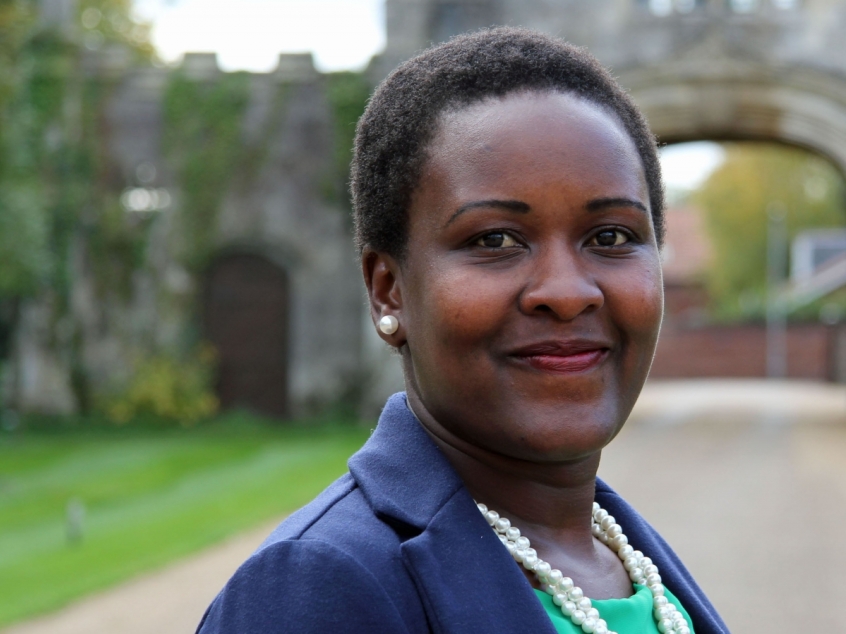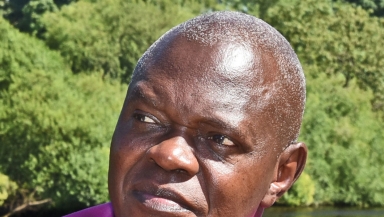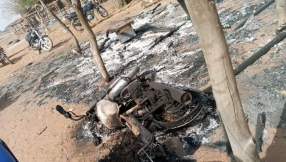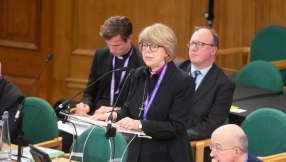"Where will you go?" Nashipae's sister asked her.
The reality hit her. There was nowhere to go.
"You can imagine a child who has not been told well in advance what is going to happen to them. They are very vulnerable because they don't know who they can go to support them or help them.
"For me when I was growing up even the police officers would be people from my own community. So even if I went to the police station they would have taken me back home.
"That is the reality," she said.
"It's a terrible feeling because you can't run away and even if you do you don't know what to do next. If you stay you have to face the pain. Unfortunately I had to face the pain."
Like millions of girls like her, Nashipae had nowhere to run. So she was cut.

Female Genital Mutilation (FGM) plagues around 200 million women and girls today in more than 30 countries. It is concentrated in Africa, the Middle East and Asia, but in the UK there were 8,660 cases identified in 2015-16.
Nashipae is not her real name. Changed in order to protect her family, her adopted pseudynm means "joyful child" in Masai, her mother tongue.
"I have decided to choose that name because I have moved on from that sadness of what happened to me to actually having an impact on other peoples' lives," she told Christian Today.
Now a seasoned campaigner fighting FGM, Nashipae firmly believes she can end it within a generation.
After she moved from Kenya where she was cut to the UK, the full horror of what happened began to dawn on her.
"It was so traumatic and I kept remembering what happened," she said.
"It took me over 15 years before I could even stand any conversations whatsoever. Anybody who would mention FGM I would just be like, 'I can't talk about it'."
What forced her to speak out was her niece turning the age at which she would be cut. At first she just campaigned within her family but it prevented the young girls in her family going through it.
But before she moved to the UK, the question of whether it was wrong did not even occur to her.
"It was very confusing because you can imagine I knew my parents loved me and were not doing this because they hated me. It is just they believed it was the right thing to do.
"So part of me was actually quite excited because almost everyone in the village had gone through it so it was the normal thing to do.
"But part of me was also afraid of the pain involved.
"It is just confusion of not knowing why people who love you would want you to go through that but also not wanting to be different from everyone else."
She added: "Think about this way – if my great grandmother, my grandmother, my mother my sisters had all gone through it – everybody – it becomes the norm unless people start challenging it. "
Now after 15 years of staying silent, she estimates she mentions FGM on average 30 times every day in her campaigning and advocacy work. For her, speaking out has been therapeutic.
"It was actually part of the healing process because before I used to feel I was carrying this really heavy burden," she told Christian Today.

"When I see the women coming forward it gives me a lot of joy because I know it is something I have to do. It is a call. The feeling is so strong I can't ignore it. There are so many things I would have moved on to do but I definitely had to push forward with this."
The UK now has strict laws against FGM thanks to the Female Genital Mutilation Act (2003). But since those laws came into place, not a single prosecution has taken place despite around 5,700 new cases identified in 2015-16 alone.
The government introduced a mandatory duty on doctors and nurses to report FGM where discovered and it was named a "serious crime" under the 2015 act.
But Nashipae says the key lies in the survivors.
"I managed to stop FGM within my own family," she said. "Imagine if every woman who has grown up with FGM decided to stop that in their family.
"We can end it in a generation."
'Agape Love Stories: 22 stories of God's love changing lives today' (Darton Longman & Todd, £9.99) is available to buy now.













